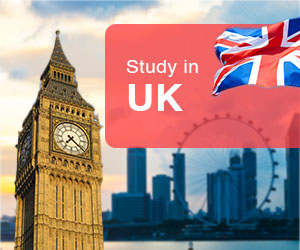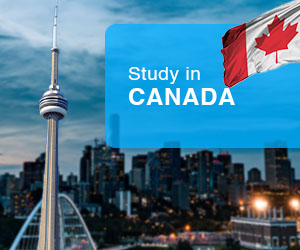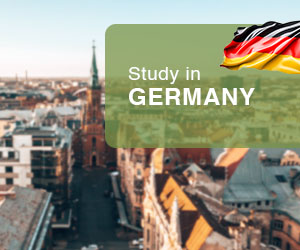Top Universities in Canada:
Other top universities in Canada include the University of Ottawa, Dalhousie University and Simon Fraser University.
Let us take a look at the top universities in Canada and what they have to offer:
University of Toronto: UToronto, as it is popularly known, the University of Toronto is one of the top universities in the world. It has three campuses: Downtown Toronto, Scarborough, and Mississauga. It is a research-intensive university and offers various courses such as Master of Science in Applied Computing, MSc Computer Science, Master of Applied Science and Aerospace Engineering, MBA, MA in Psychology and many more.
McGill University: An open-research University established in 1821, McGill University is yet another top university in Canada. It is located in Montreal, Quebec. The University offers hundreds of programs to its students ranging from a wide variety of areas such as animal science, biochemistry, communication studies to human nutrition, law, and sociology. Popular options for the MS include- MS in Computer Science, MS in Civil Engineering, MSc in Mechanical Engineering, MBA, Master of Law and many more.
University of British Columbia: Located in Kelowna as well as Vancouver, British Columbia, the University of British Columbia was established in 1908. The University is recognized as North America’s ‘most international university’. UBC offers various MS courses such as- MS in Computer Science, MS in Materials Engineering, MS in Chemical and Biological Engineering, MS in Nursing, MBA, Master of Physical Therapy; amongst many others.
University of Alberta: Yet another research-intensive university, University of Alberta is among the world’s top universities. A few of the many courses that this University offers are- MS in Mathematical and Statistical Sciences, MSc Civil and Environmental Engineering, MSc in Computing Science, MBA in Finance and MBA in International Business.
Université de Montréal: Popularly known as UdeM, this is a public research university located in Quebec. Spread across 60+ departments, the University offers 65 graduate and undergraduate programs and 71 doctoral programs for students to choose from. The University offers various programs such as MS in Economics, MS in Mathematics and Computational Finance, MA in Psychology and many others.
McMaster University: One of the top 100 universities of the world, the McMaster University was established in 1887. The University is home to hundreds of international students from all over the world. McMaster University offers various courses such as MSc in Computer Science, MS in Nursing, M.A.Sc in Chemical Engineering and M.A.Sc in Mechanical Engineering, MBA, MD.
University of Waterloo: Located in Waterloo, Ontario, the University of Waterloo is home to thousands of students from over 120 different countries of the world. It offers over 100 undergraduate and 190 graduate programs. Some of the courses offered by the University include- Master of Applied Science in Electrical and Computer Engineering, Master of Applied Science in Chemical Engineering and Master of Applied Science in Mechanical and Mechatronics Engineering, MA in Economics, Doctor of Pharmacy.
Western University: Western University is also amongst the best universities in Canada. It is a research university located in London, Ontario. The University offers various undergraduate, graduate as well as doctoral programs. Some of the courses offered by this University include MS in Computer Science, MESc in Mechanical and Materials Engineering, MESc in Electrical and Computer Engineering, Juris Doctor, MBA, etc.
University of Calgary: With 55 departments, 250 undergraduate, graduate, and doctoral programs and thousands of students enrolling every year, the University of Calgary is one of the top 50 Universities in the world. It offers various programs such as MS in Computer Science, MBA, MA in Communication and Media Studies, Masters of Nursing, MEngChemical Engineering and many others.
Queen’s University: Queen’s University is one of the oldest universities in Canada, established in 1841. According to QS World Ranking, it is the 10th Best University in Canada. Queen’s University is home to 28000+ students. The University offers various courses such as- MS in Management, full-time MBA, Master of Management Analytics, Juris Doctor, MS in Nursing etc.
Canada is one nation where you can pick any city and you won’t get disappointed. In any case, there are some cities better than others. According to the Best cities for students QS Rankings, Montreal ranks first for ‘student experience’, describing it as affordable, interesting, art and culturally inclined, with good food and people. It overtook fellow Canadian city Ottawa as number one according to the students in the previous rankings.







